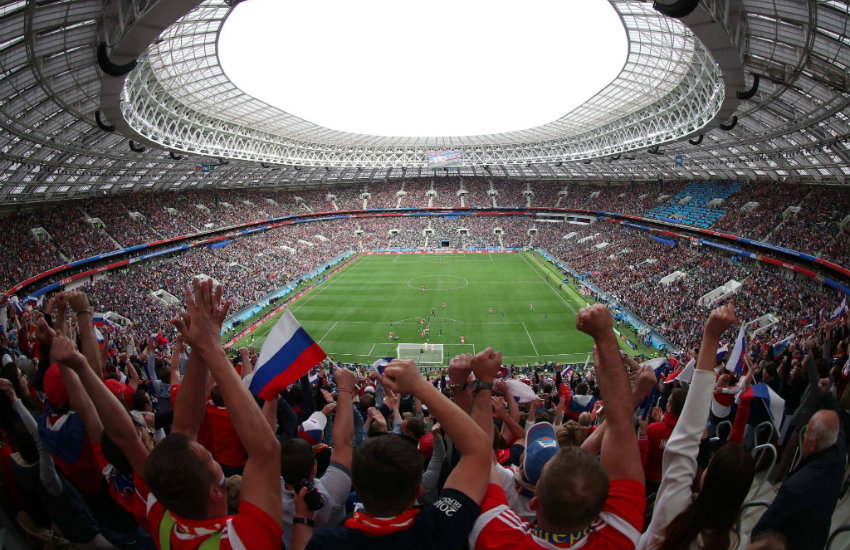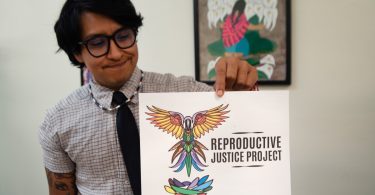Russia’s first World Cup match against Saudi Arabia | Photo: Facebook/FIFA World Cup
The continued controversy and criticism of this year’s FIFA World Cup is increasing with the start of the event today in Russia.
The heat mostly stems from Russia’s anti-LGBTI stances and various other human rights abuses. Stories of negative experiences have already begun.
LGBTI activist Peter Tatchell traveled to Russia, calling on Putin to protect LGBTI people in Chechnya, and was detained. He has since been released.
A same-sex couple traveled to Russia to support France in the World Cup. Upon their arrival, they were attacked and taken to a hospital.
These stories help explain the statistic from PartyCasino, revealing that 71% of people in Britain think Russia’s World Cup is a dangerous environment.
The organization surveyed over 2,000 people across the United Kingdom about the World Cup.
Could you be paid to go?
The survey revealed a general attitude of apprehension regarding the world’s biggest soccer competition.
Respondents gave various reasons not to go. 42% of men said it was because of the threat of violence, while 26% cited racism and homophobia.
They would also give up some pretty steep things rather than go to Russia this summer.
1 in 10 would give up football for a year than go, while another 1 in 8 would give up alcohol. 1 in 20, meanwhile, would rather their club sell their best player than go.
Finally, nearly two-thirds of fans said they would need to be paid at least £100,000 to take the chance in going to Russia.
As for those going, a majority of British people (54%) have tried to convince them not to go.
Homophobia is a real problem
Discriminatory attitudes within sports is a known problem.
In a new report from the Human Rights Campaign, 80% of both spectators and athletes say they have witnessed anti-LGBTI attitudes in sports.
Most of these attitudes (41%) occur amongst fans in the stands.
HRC reccommends several tactics to combat these instances within sports. They said both vendors and teams should institute anti-discrimination policies, as well as policies to become more inclusive (especially for trans people).
Also, witnesses should report hate speech and actions to any staff.
Defying Russian authorities
Despite these attitudes and fears, people are finding their own ways to defy Russian authories and support LGBTI causes.
Whether it’s waving rainbow flags at games…
While the President is giving his speech. A #rainbowflag is at the stadium at the opening match! #lgbt #wc2018 #russia pic.twitter.com/M9dTjx3xJF
— Alexander (@Konijnvanolland) June 14, 2018
… Or donating money to LGBTI groups.
Paddy Power announced for every goal the Russian team scores in the World Cup, they’ll donate £10,000 to Attitude magazine’s Foundation.
Russia kickstarted the World Cup earlier today with a 5-0 win over Saudi Arabia. That’s £50,000 helping an LGBTI charity.







